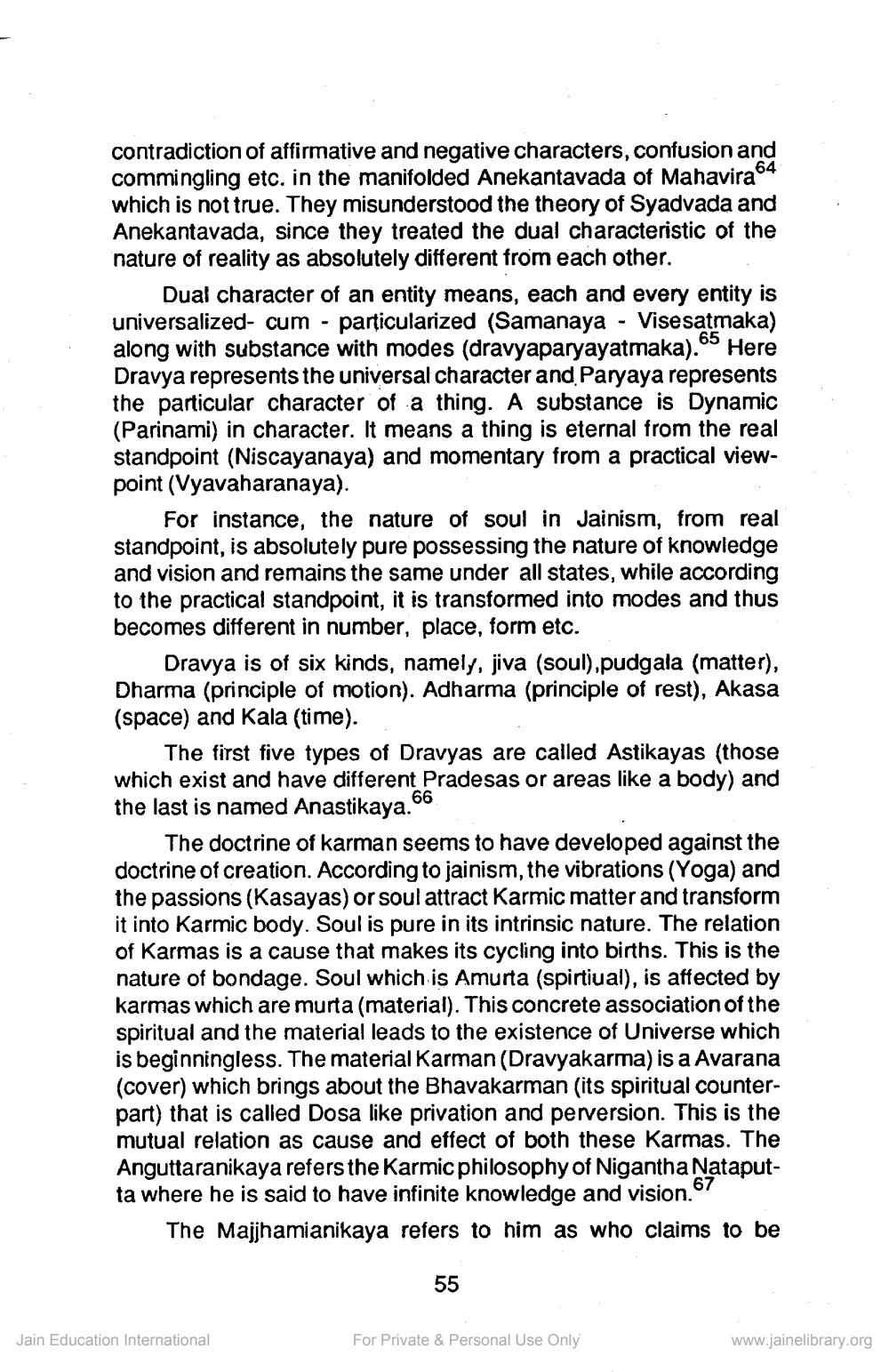________________
contradiction of affirmative and negative characters, confusion and commingling etc, in the manifolded Anekantavada of Mahavira which is not true. They misunderstood the theory of Syadvada and Anekantavada, since they treated the dual characteristic of the nature of reality as absolutely different from each other.
Dual character of an entity means, each and every entity is universalized- cum - particularized (Samanaya - Visesatmaka) along with substance with modes (dravyaparyayatmaka). Here Dravya represents the universal character and Paryaya represents the particular character of a thing. A substance is Dynamic (Parinami) in character. It means a thing is eternal from the real standpoint (Niscayanaya) and momentary from a practical viewpoint (Vyavaharanaya).
For instance, the nature of soul in Jainism, from real standpoint, is absolutely pure possessing the nature of knowledge and vision and remains the same under all states, while according to the practical standpoint, it is transformed into modes and thus becomes different in number, place, form etc.
Dravya is of six kinds, namely, jiva (soul),pudgala (matter), Dharma (principle of motion). Adharma (principle of rest), Akasa (space) and Kala (time).
The first five types of Dravyas are called Astikayas (those which exist and have different Pradesas or areas like a body) and the last is named Anastikaya.66
The doctrine of karman seems to have developed against the doctrine of creation. According to jainism, the vibrations (Yoga) and the passions (Kasayas) or soul attract Karmic matter and transform it into Karmic body. Soul is pure in its intrinsic nature. The relation of Karmas is a cause that makes its cycling into births. This is the nature of bondage. Soul which is Amurta (spirtiual), is affected by karmas which are murta (material). This concrete association of the spiritual and the material leads to the existence of Universe which is beginningless. The material Karman (Dravyakarma) is a Avarana (cover) which brings about the Bhavakarman (its spiritual counterpart) that is called Dosa like privation and perversion. This is the mutual relation as cause and effect of both these Karmas. The Anguttaranikaya refers the Karmic philosophy of Nigantha Nataputta where he is said to have infinite knowledge and vision.
The Majjhamianikaya refers to him as who claims to be
55
Jain Education International
For Private & Personal Use Only
www.jainelibrary.org




